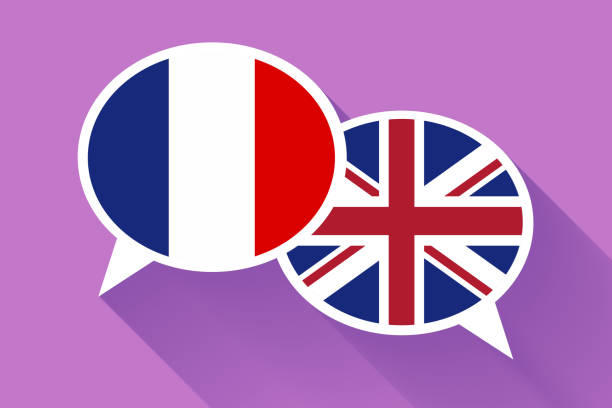
96 French Words That You (Probably) Didn’t Know Are Also Used in English
Did you know that you were already semi-French before actually deciding to learn the language?
In fact, if you believe some sources, over half of the English language derives from le français. That gives French a massive influence over English—but wait, it gets better.
While many English words that come from French have since changed their spellings and pronunciation, there are also plenty of French words in English that haven’t changed between the two languages.
Here are 96 entirely French words that we use in English.
Contents
- Most Common French Words Used in English
- French Culinary Terms in English
- French Fashion Words in English
- French Art and Culture Terms in English
- French Architectural Terms in English
- Why We Use French Words in English
- And one more thing...
Download: This blog post is available as a convenient and portable PDF that you can take anywhere. Click here to get a copy. (Download)
Most Common French Words Used in English
Let’s kick off the post with some of the most common French words in English that you likely didn’t know were, well, French!
| French Word / Loanword | French Meaning | English Meaning | French Example Sentence |
|---|---|---|---|
| À la Carte | According to a menu | Choosing individual items off a menu | Je voudrais des frites à la carte. (I would like an order of fries à la carte.) |
| Attaché | Attached | Someone who works for an ambassador | Elle est attachée à l'ambassadeur du Canada. (She's an attaché to the Canadian ambassador.) |
| Avant-garde | Before guard/Advance guard | An innovative movement in the arts, usually pertaining to artists who are "advanced" in their fields | Andy Warhol était un artiste de l'avant-garde. (Andy Warhol was an avant-garde artist.) |
| Bon Voyage | Good trip | Good trip | Bon voyage ! Tu vas me manquer ! (Bon voyage! I will miss you!) |
| Bureau | Physical desk/office | Political or government office | Le bureau des finances a refusé mon prêt. (The financial bureau denied my loan.) |
| Carte Blanche | White card | To give someone the opportunity to do whatever they want to do, surrendering to their whim | Il avait carte blanche. (He had carte blanche.) |
| Chic | Well-dressed | Well-dressed | Elle est très chic. (She is so chic.) |
| Cliché | Something so common, it's overrated | Something so common, it's overrated | Leur mariage était tellement cliché. (Their wedding was so cliché.) |
| Connoisseur | Someone very knowledgeable about something | Someone very knowledgeable about something | Il est un connoisseur de vin. (He is a wine connoisseur.) |
| Cordon-bleu | Blue ribbon | A common dish where breaded chicken is cooked with ham and cheese | Je veux un plat cordon bleu. (I want a cordon-bleu dish.) |
| Coup de grâce | A final straw | A final straw | Il n'y avait même pas de moutarde dans mon sandwich, c'était le coup de grâce ! (There wasn't even mustard in my sandwich, it was the coup de grâce!) |
| Cul-de-sac | Bottom of the bag | Dead end of a road | Cette rue menait à un cul-de-sac. (This road has led to a cul-de-sac.) |
| Débris | Broken pieces of material | Broken pieces of material | La bombe a tout transformé en débris. (The bomb turned everything into debris.) |
| Déjà Vu | Already seen | Feeling that you've seen/experienced something before | J'ai eu un sentiment déjà-vu. (I had [a feeling of] déjà vu.) |
| Eau de Toilette | Toilet water | A light perfume used for washing/dressing | J’ai acheté une bonne eau de toilette. (I bought a good eau de toilette.) |
| En Route | On the way | On the way | Votre paquet est en route. (Your package is en route.) |
| Façade | Frontage/Face | Fake/Putting up a front/Front of a building | La façade de cette maison est ancienne. (The façade of this house is old.) |
| Faux pas | Misstep | Something that isn't generally acceptable in the social realm | Crier dans une bibliothèque est un faux pas. (Screaming in the library is a faux pas.) |
| Femme Fatale | Deadly woman | A seductive woman with a dangerous streak | Regardez, c’est une femme fatale ! (Look, she’s a femme fatale!) |
| Fiancé / Fiancée | Someone who is engaged | Someone who is engaged | Je vous présente mon fiancé. (I introduce you to my fiancé.) |
| Gauche | Left | Social awkwardness/Socially awkward | Il est un peu gauche. (He is a little gauche.) |
| Hors-d'œuvre | Out of work | Small dishes that come before a main course such as deviled eggs, cheese and crackers, etc. | Les hors-d'œuvre étaient vraiment délicieux. (The hors d'oeuvres were very delicious.) |
| Je Ne Sais Quoi | I don’t know what | A quality that’s hard to describe but very attractive | Elle avait un certain je ne sais quoi. (She had a certain je ne sais quoi.) |
| Laissez-faire | Let it happen | Relaxed, hands-off attitude | Il préfère laissez-faire ses employés. (He prefers to be laissez-faire with his employees.) |
| Mirage | Look at/Wonder at | A visual wish or desire | J'ai cru voir une île; c'était un mirage. (I thought I saw an island; it was a mirage.) |
| Potpourri | Rotten pot | Fragranced dried flower, fruits and herbs used to get rid of bad odors | J'ai acheté ce potpourri pour la salle de bain. (I bought this potpourri for the bathroom.) |
| Souvenir | Remember/Recall | A tiny piece of memorabilia | Peux-tu acheter un souvenir pour moi ? (Can you buy a souvenir for me?) |
French Culinary Terms in English
French food is delicious, so it’s no wonder that English borrowed a few words (and cooking ideas) from the language!
| French Word / Loanword | French Meaning | English Meaning | French Example Sentence |
|---|---|---|---|
| Amuse-bouche | Mouth amuser | Bite-sized appetizer or palate cleanser | Le chef a préparé un amuse-bouche exquis pour ouvrir le repas. (The chef prepared an exquisite amuse-bouche to start the meal.) |
| Au gratin | With gratings | Dish with a golden-brown crust on top | Les pommes de terre étaient au gratin, avec une délicieuse croûte au fromage. (The potatoes were au gratin, with a delicious cheesy crust.) |
| Béchamel | Béchamel | Creamy white sauce made with butter, flour and milk | Les lasagnes étaient superposées avec de la sauce béchamel pour une texture riche et onctueuse. (The lasagna was layered with béchamel sauce for a rich and smooth texture.) |
| Bistro | Bistro | Small, casual restaurant serving simple, home-style dishes | Allons dîner dans ce charmant bistro au coin de la rue. (Let's have dinner at that charming bistro around the corner.) |
| Bouquet garni | Garnished bouquet | Bundle of herbs tied together and used for flavoring in cooking | Le ragoût mijotait avec un bouquet garni pour infuser les saveurs des herbes. (The stew simmered with a bouquet garni to infuse the flavors of the herbs.) |
| Brasserie | Brewery | French-style restaurant serving beer and hearty food | Nous avons savouré un délicieux dîner à la brasserie, en appréciant l'ambiance et les plats traditionnels. (We enjoyed a delicious dinner at the brasserie, savoring the ambiance and traditional dishes.) |
| Café au lait | Coffee with milk | Coffee with hot milk | Je préfère commencer ma journée avec un café au lait, c'est une façon réconfortante de se réveiller. (I prefer starting my day with a café au lait, it's a comforting way to wake up.) |
| Canapé | Sofa | Small, bite-sized appetizer or hors d'oeuvre | Les invités de la fête se sont régalés des délicieux canapés circulant grâce au personnel de service. (The party guests delighted in the delicious canapés passed around by the waitstaff.) |
| Casserole | Saucepan | Ovenproof dish used for cooking and serving food | Elle a préparé une savoureuse casserole de poulet pour le dîner. (She prepared a savory chicken casserole for dinner.) |
| Charcuterie | Pork butcher's shop | Assortment of cured meats, pâtés and sausages | La planche de charcuterie mettait en vedette une sélection de produits… (The charcuterie board showcased a selection of products...) |
| Chef | Chief | Head cook or professional chef | Le chef a créé un chef-d'œuvre avec ses compétences culinaires innovantes. (The chef created a masterpiece with his innovative culinary skills.) |
| Crème brûlée | Burnt cream | Creamy custard dessert with a caramelized sugar topping | La crème brûlée avait une croûte de sucre parfaitement caramélisée. (The crème brûlée had a perfectly caramelized sugar crust.) |
| Crêpe | Pancake | Thin, pancake-like pastry | Ils ont apprécié des crêpes sucrées garnies de Nutella et de fraises au petit-déjeuner. (They enjoyed sweet crêpes filled with Nutella and strawberries for breakfast.) |
| Cuisine | Cooking | Style of cooking or cuisine | La cuisine française est réputée pour son utilisation d'ingrédients frais. (French cuisine is renowned for its use of fresh ingredients.) |
| Éclair | Lightning | Long, cream-filled pastry topped with icing | Elle n'a pas pu résister à l'éclair de la boulangerie. (She couldn't resist the éclair from the bakery.) |
| Entrée | Entry | Main course or appetizer in a formal meal | En France, l'entrée désigne généralement l'entrée principale. (In France, the term "entrée" typically refers to the main course.) |
| Filet mignon | Cute fillet | Tender, boneless cut of beef or pork tenderloin | Il a commandé le filet mignon cuit à point. (He ordered the filet mignon cooked medium-rare.) |
| Flambé | Flamed | Food cooked with alcohol and set on fire briefly | Le serveur a préparé un dessert flambé à table. (The waiter prepared a flambéed dessert at the table.) |
| Fondant | Melting | Soft and smooth dessert, often chocolate-based | Le fondant au chocolat dégageait du chocolat chaud et fondant lorsqu'on le coupait. (The chocolate fondant oozed warm, molten chocolate when it was cut into.) |
| Gourmet | Fine food | Culinary expert or food connoisseur | Il se considère comme un gourmet et adore essayer de nouveaux plats. (He considers himself a gourmet and loves trying new dishes.) |
| Macaron | Macaroon | Sweet, meringue-based cookie with a creamy filling | Elle a acheté une boîte de macarons colorés à la pâtisserie. (She bought a box of colorful macarons from the patisserie.) |
| Mousse | Foam | Light and frothy dessert or hair product | La mousse au chocolat était riche et délicieuse. (The chocolate mousse was rich and delicious.) |
| Pâtisserie | Pastry shop | Bakery specializing in pastries and sweets | La pâtisserie exposait une tentante sélection de croissants, gâteaux et tartes. (The patisserie displayed a tempting selection of croissants, cakes and tarts.) |
| Quiche | Cake | Savory, open-faced pastry filled with eggs, cream and various ingredients | Nous avons dégusté une délicieuse quiche aux épinards et au fromage pour le brunch. (We savored a delicious spinach and cheese quiche for brunch.) |
| Ratatouille | Ratatouille | Vegetable stew made with eggplant, zucchini, peppers and tomatoes | Elle a cuisiné une ratatouille savoureuse avec des légumes d'été frais. (She cooked a flavorful ratatouille with fresh summer vegetables.) |
| Sauté | Jumped | Cooking technique of quickly frying food in a small amount of fat | Il a sauté les champignons jusqu'à ce qu'ils soient dorés. (He sautéed the mushrooms until they were golden brown.) |
| Soufflé | Puffed up | Light and airy baked dish made with egg yolks and beaten egg whites | Le soufflé au fromage a magnifiquement gonflé au four. (The cheese soufflé rose beautifully in the oven.) |
| Tartare | Tartar | Raw or lightly cooked minced meat or fish mixed with seasonings | Il a commandé le tartare de bœuf avec une portion de frites croustillantes. (He ordered the beef tartare with a side of crispy fries.) |
| Vinaigrette | Little vinegar | Emulsified dressing made with vinegar, oil and seasonings | Elle a arrosé la salade d'une vinaigrette acidulée avant de la servir. (She drizzled the salad with a tangy vinaigrette before serving it.) |
French Fashion Words in English
French fashion is definitely chic (that’s a French loanword too, as mentioned above). Here are a few more loanwords that have made their way down the French runway and straight into the English lexicon:
| French Word / Loanword | French Meaning | English Meaning | French Example Sentence |
|---|---|---|---|
| Avant-gardiste | Avant-gardist | Person who embraces innovative and experimental fashion | Elle est connue comme une avant-gardiste dans l'industrie de la mode. (She is known as an avant-gardist in the fashion industry.) |
| Béret | Beret | Round, flat-crowned hat, typically made of wool | Il portait un élégant béret pour compléter son look d'inspiration française. (He wore a stylish beret to complete his French-inspired look.) |
| Boutique | Shop | Small specialized shop or store | Elle a trouvé une belle robe dans une boutique locale. (She found a beautiful dress at a local boutique.) |
| Chapeau | Hat | Hat, typically a formal or fashionable one | Elle portait un élégant chapeau pour le mariage royal. (She wore an elegant chapeau to the royal wedding.) |
| Chignon | Bun | Hairstyle in which the hair is twisted or bun at the back of the head | Elle a coiffé ses cheveux en un chignon chic pour l'événement formel. (She styled her hair in a chic chignon for the formal event.) |
| Coiffure | Hairdressing | Hairstyle or a hairdressing salon | Elle a rendu visite au coiffeur pour se faire une nouvelle coiffure. (She visited the coiffure to get a new haircut.) |
| Corset | Corset | Undergarment worn to shape and support the waist and bust | Le corset vintage mettait en valeur sa silhouette en sablier. (The vintage corset accentuated her hourglass figure.) |
| Couture | Sewing | High-quality, custom-made clothing and craftsmanship | La robe de couture était minutieusement confectionnée à la main avec des détails complexes. (The couture gown was meticulously handcrafted with intricate details.) |
| Couturier | Dressmaker | Fashion designer, especially for women's clothing | Le célèbre couturier a présenté sa dernière collection à la semaine de la mode. (The famous couturier showcased his latest collection at the fashion week.) |
| Décolletage | Neckline | Low neckline or the exposed area of a woman's chest and neckline | La robe avait un beau décolletage qui ajoutait un élément d'allure. (The dress had a beautiful décolletage that added an element of allure.) |
| Décolleté | Uncovered | Low neckline or a dress with a low neckline | Elle portait une superbe robe de soirée avec un décolleté audacieux. (She wore a stunning evening gown with a daring décolleté.) |
| Éclat | Shine | Brilliance or radiance, often used to describe a person's style | Son sens de la mode avait un éclat sans effort qui attirait tous les regards. (Her fashion sense had an effortless éclat that turned heads.) |
| Ensemble | Together | Coordinated outfit or a group of garments | Elle a assemblé un ensemble élégant pour le défilé de mode. (She put together a stylish ensemble for the fashion show.) |
| Foulard | Scarf | Lightweight scarf, typically made of silk | Elle a noué un foulard coloré autour de son cou en tant qu'affirmation de style. (She draped a colorful foulard around her neck as a fashion statement.) |
| Haute couture | High sewing | High fashion, custom-made clothing | Elle aspire à travailler dans le monde de la haute couture. (She aspires to work in the world of haute couture.) |
| Lingerie | Undergarments | Women's underwear or sleepwear | Elle a acheté de la lingerie neuve pour sa lune de miel. (She bought some new lingerie for her honeymoon.) |
| Modiste | Hatmaker | Milliner or a person who designs and makes hats | La modiste a créé des chapeaux uniques et artistiques pour le défilé de mode. (The modiste created unique and artistic hats for the fashion show.) |
| Parfumerie | Perfumery | Perfume shop or a store that specializes in fragrances | Elle a exploré la parfumerie à la recherche de son parfum signature. (She explored the parfumerie in search of her signature scent.) |
| Robe | Dress | Dress, especially a formal or elegant one | Elle portait une superbe robe rouge pour l'événement de gala. (She wore a stunning red robe to the gala event.) |
| Silhouette | Shadow | Outline or shape of a person's body or a garment | La robe flattait sa silhouette et mettait en valeur ses courbes. (The dress flattered her silhouette and accentuated her curves.) |
| Soirée | Evening | Elegant evening social gathering or party | Ils ont participé à une soirée glamour dans l'hôtel de luxe. (They attended a glamorous soirée at the luxurious hotel.) |
French Art and Culture Terms in English
From painting to music and beyond, these French words regularly show up in English if you’re in the art scene:
| French Word / Loanword | French Meaning | English Meaning | French Example Sentence |
|---|---|---|---|
| A cappella | In the chapel | Singing without instrumental accompaniment | La chorale a interprété une belle version a cappella de l'hymne. (The choir performed a beautiful a cappella rendition of the hymn.) |
| Art Nouveau | New Art | Decorative style characterized by flowing lines and organic motifs | Le bâtiment présentait une architecture magnifique de style art nouveau. (The building featured stunning Art Nouveau architecture.) |
| Pastiche | Imitation | Work of art that imitates the style of another artist or period | La peinture était un pastiche astucieux des chefs-d'œuvre de la Renaissance. (The painting was a clever pastiche of Renaissance masterpieces.) |
| Atelier | Workshop | Artist's workshop or studio | La peintre passait des heures dans son atelier, créant des chefs-d'œuvre. (The painter spent hours in her atelier, creating masterpieces.) |
| Ballet | Dance | Classical dance form | Elle s'entraîne pour devenir une danseuse de ballet professionnelle. (She is training to become a professional ballet dancer.) |
| Chef-d'œuvre | Masterpiece | Masterpiece, a work of outstanding skill and artistry | La Joconde est considérée comme un chef-d'œuvre de l'art de la Renaissance. (The Mona Lisa is considered a chef-d'oeuvre of Renaissance art.) |
| En plein air | In the open air | Outdoors, in the open air | Les artistes ont installé leurs chevalets en plein air pour peindre le paysage pittoresque. (The artists set up their easels en plein air to paint the scenic landscape.) |
| Joie de vivre | Joy of living | Joy of living, zest for life | Les tableaux de l'artiste ont capturé l'essence de la joie de vivre. (The artist's paintings captured the essence of joie de vivre.) |
| Muse | Muse | Source of inspiration for an artist or creative individual | Elle était sa muse, l'inspirant à créer de beaux poèmes. (She was his muse, inspiring him to create beautiful poetry.) |
| Pièce de résistance | Masterpiece | Main attraction or showpiece | La pièce de résistance de l'exposition d'art était une sculpture époustouflante. (The pièce de résistance of the art exhibition was a stunning sculpture.) |
| Rendez-vous | Meeting | Planned meeting or appointment | Ils avaient un rendez-vous romantique au café. (They had a romantic rendezvous at the café.) |
| Tableau | Picture | Visual representation, especially a scene or group of figures | Le tableau représentait un paysage serein aux couleurs vibrantes. (The tableau depicted a serene landscape with vibrant colors.) |
| Trompe-l'œil | Deceives the eye | Visual illusion, often used in painting to create a realistic effect | La fresque présentait une impressionnante technique de trompe-l'œil. (The mural featured an impressive trompe-l'œil technique.) |
French Architectural Terms in English
Architecture hasn’t escaped French vocabulary influence, either! Here are some loanwords related to buildings, structures and all that’s related to them:
| French Word / Loanword | French Meaning | English Meaning | French Example Sentence |
|---|---|---|---|
| Arcade | Arcade | Series of arches supported by columns or pillars | La rue commerçante était bordée de belles arcades, créant une atmosphère charmante. (The shopping street was lined with beautiful arcades, creating a charming atmosphere.) |
| Balustrade | Balustrade | Railing or barrier with decorative posts | L'escalier était orné d'une balustrade élégante. (The staircase was adorned with an elegant balustrade.) |
| Château | Castle | French castle or mansion | Ils ont visité un château majestueux dans la vallée de la Loire. (They visited a majestic château in the Loire Valley.) |
| Parapet | Parapet | Low protective wall or barrier along the edge of a roof or balcony | Le parapet assurait la sécurité et servait d'élément décoratif sur la terrasse du toit. (The parapet provided safety and served as a decorative element on the rooftop terrace.) |
| Porte cochère | Carriage door | Covered entrance or gateway for vehicles | La grande propriété présentait une belle porte cochère pour les invités arrivants. (The grand estate featured a beautiful porte cochère for arriving guests.) |
| Véranda | Porch | Covered outdoor area, often with a roof and open sides | Ils ont apprécié un thé l'après-midi sur la véranda donnant sur le jardin. (They enjoyed afternoon tea on the veranda overlooking the garden.) |
Why We Use French Words in English
As French evolved from old Gaulish and Latin into what it is today, it became ever more universal. Even before modern borders were established, the French language was very dominant in modern-day England.
And while English evolved and became more of its own language, it also took on quite a bit of French during its formation at the same time.
Because the world is becoming more and more globalized, meaning different languages and cultures are interacting with each other as they never could before, this has led to an inevitable exchange of words and phrases between many languages.
And there you have it, a few French phrases that are officially part of the English language.
Can you think of any more?
Download: This blog post is available as a convenient and portable PDF that you can take anywhere. Click here to get a copy. (Download)
And one more thing...
If you like learning French vocabulary on your own time and from the comfort of your smart device, then I'd be remiss to not tell you about FluentU.
Other sites use scripted content. FluentU uses a natural approach that helps you ease into the French language and culture over time. You’ll learn French as it’s actually spoken by real people.
FluentU has a wide variety of great content, like interviews and web series, as you can see here:

FluentU brings native videos within reach with interactive subtitles.
You can tap on any word to look it up instantly. Every definition has examples that have been written to help you understand how the word is used.

For example, if you tap on the word "crois," you'll see this:

Practice and reinforce all the vocabulary you've learned in a given video with FluentU's adaptive quizzes. Swipe left or right to see more examples for the word you’re learning and play the mini-games found in the dynamic flashcards, like "fill in the blank."

As you study, FluentU tracks the vocabulary that you’re learning and uses this information to give you a 100% personalized experience.
It gives you extra practice with difficult words—and reminds you when it’s time to review what you’ve learned.
Start using the FluentU website on your computer or tablet or, better yet, download the FluentU app from the iTunes or Google Play store. Click here to take advantage of our current sale! (Expires at the end of this month.)







